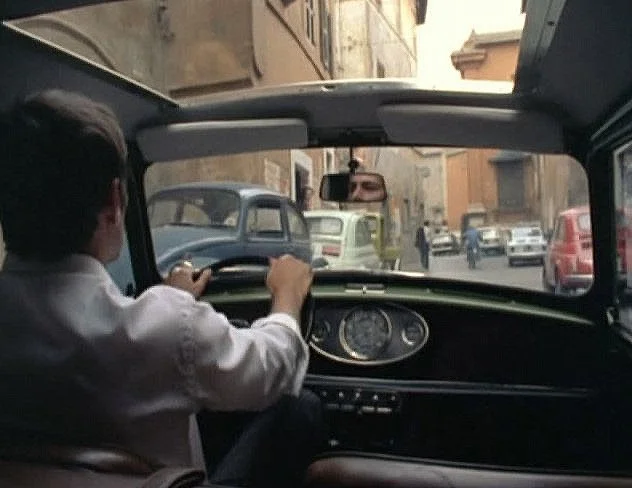Disjecta Membra: Some Notes on Mandelstam
Philippe Jaccottet’s 1981 essay on Osip Mandelstam, with poems translated by Matvei Yankelevich and John High.
Disjecta Membra: Freud on Transience
Politically, melancholia may be more destructive than idealism, but aesthetically, doesn’t melancholia, as a kind of negative idealism, seem almost natural?
Disjecta Membra: Claude Lévi-Strauss & André Breton
Victor Cova introduces a 1941 exchange between Claude Lévi-Strauss and André Breton.
Disjecta Membra: Modernist Cinema: The History Lessons of Straub and Huillet (1978) by Gilberto Perez
Gilberto Perez’s commentary on history as seen through the lens of the filmmaker duo Straub-Huillet.
Disjecta Membra: Erik Satie
Personally, I associate Satie’s work with a feeling of the aridity that Nietzsche came to value over Wagnerism — the gentle sea-breeze in the highest mountains that wafts in from some strange land and tickles the senses with possibilities of spiritual freedom.
Disjecta Membra: Mad Love by André Breton
As the artist, reaching deep into nothing, with nothing, and only for the sake of desire, creates something great, far beyond the imagined object of desire, fulfilling and exceeding every wish in a way which could never have been fully anticipated, so too does the lover encounter the beloved.
Apocalyptic Vision: Poems by Ronnie Burk
He was not a literary artist in the sense that his work doesn’t seem to wrestle with questions of form; he’s not attempting to reinvent the surrealist modes at his disposal but rather making use of them as vehicles for his insurgent imagination and apocalyptic vision, the fury of which elevates his writing above and beyond the mere assemblage of irrational word combinations.
Poems by Gerald Barrax
When I looked up Barrax’s collections, I found that his work spans not only relatively traditional-looking lyrics, but formally experimental poems that disarrange syntax and disperse words across the page.
Disjecta Membra: Robert Schumann on Beethoven
After a century of deafness to the task and ambition of music, composers may need to relearn how to learn before Schumann’s words can even begin to make sense. How can the music of the past free the music of the present?
Poems by Jack Clarke
Jack’s poetry asks you, the reader, to abandon yourself, to engage with what you don’t know, and can’t understand, and enter a path of transformative gnosis.
Poems by Helen Adam
Helen Adam is a singular luminary whose ballads, if you read them out loud and late at night, will sneak into your mind and create phantasmagorias of exquisite, sensual, brooding, and melancholy fairy-tales.
Cyclopean Liqueur: An Appreciation of Laurence Weisberg’s Poetry
Brian Lucas writes about the life and career of Laurence Weisberg.
Poems by Grey Space
Grey Space poems are like placards, billboards, vertiginous verbal icons; they are often verse vendettas, self-mythologizing though not self-aggrandizing documents, punk percussion protests, dirty ditties, saucy stanzas, and crazy collages that are collisions of sound, sense, and structure.
Trakl and Adorno
Trakl is a main character in Adorno’s important concept of the enigmatical.
Poems by Hilda Morley
Hilda Morley’s life and career read like a course in 20th century modernism.
Georges Bataille’s “Story of the Eye,” 1928
“I grew up very much alone, and as far back as I recall I was frightened of anything sexual.”
La entrevista encontrada de Vallejo
Una entrevista con César Vallejo, perdida desde julio de 1937, publicada con notas de Andrés Ajens.
Poems by Henry Dumas
What dynamically distinguishes Dumas is the visionary element, where the everyday is upended by mythic moments and alternative possibilities of living and dreaming are represented.
Excerpt from Henry Miller’s Tropic of Capricorn, 1939
Mailer’s essay burns as a piece of literary criticism that clarifies the philosophical, aesthetic, and political motives of modern authors like Miller, who have gone the way of the dinosaur.
Excerpt from Karl Kraus’s The Last Days of Mankind, 1918
The hellmouth no longer speaks but softly sings a nonsense verse as we suckle at its infernal teat in forgetful slumber.




















